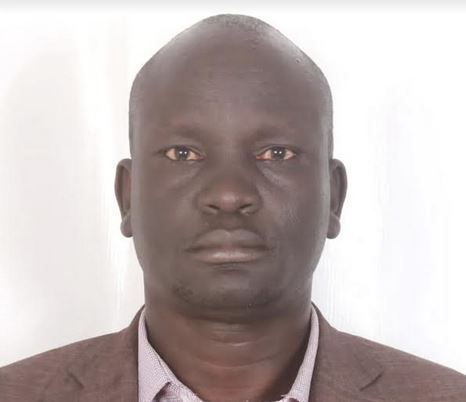BY EMMANUEL MALUAL MAKUACH
Nowhere else in the world does the political class hold a country hostage like they do in South Sudan. Dr. Riek Machar’s peace agreement gave birth to 550 parliamentarians and five vice presidents. Additionally, Dr. Riek Machar appointed his wife as the Minister of Defense and Veteran Affairs.
Corruptions under ethnic divisions are gaining ground in the oil company Nilepet, which is becoming an ethnic and tribal-oriented company.
This has buried the country’s economic hope for reforms and recovery. Government parastatals should not be headed by friends or family members, as this promotes ethnic and tribal polarisation in the workplace. These dangerous divisions began shortly after gaining independence from Sudan.
The devastating impact of South Sudan’s economic collapse has become clear, with civil servants enduring 10 months without salaries. Despite these hardships, they cling to hope and continue to chant the slogans of both parties: “Viva Viva” and “SPLM oyeee.”
The country faced issues of corruption, often tied to ethnic divisions, which were used to hide the involvement of 75 top government officials in major corruption scandals that damaged the economy.
Since gaining independence in 2011, South Sudanese politicians have exploited and fuelled ethnic and tribal divisions to gain power through rebellions within the country. The people from Upper Nile state must follow SPM IO under Dr Riek Machar, as many members joined because they were radicalized through ethnic and tribal divisions. With 64 ethnic groups, South Sudan, a country with a majority of Dinka and Nuer, has one dominant political party with candidates leading rebellions, while others lead the ruling party SPLM/A under incumbent President Kiir Mayardit. Even now, President Kiir and Dr. Riek Machar raise policy issues, but ethnicity or tribalism, as it is commonly referred to in South Sudan, still plays a significant role.
In 2013 and 2016, the South Sudanese political class clashed over the political party chairman and the flag bearer for the 2014 election. However, it escalated into a conflict between the two leaders, as President Kiir Mayardit rallied his tribes and Dr. Riek Machar mobilized his tribes, known as the White Army, to fight alongside him.
The Khartoum Peace Agreement reinstated Dr. Riek Machar, but it was not enough for the people. Instead, it resulted in lucrative deals that yielded five vice presidents in the history of South Sudan and East Africa. Dr. Riek Machar used these deals to enrich himself by appointing his relatives and friends, which ultimately led to his political downfall.
Throughout the 13 years of independence, ethnicity has played a major role in South Sudan. Rebellion, ethnic divisions, and violence have plagued the country, despite peace agreements. Ethnic politics in South Sudan manifests itself in four major ways.
First, South Sudan has an Arabic-style politics that is extractive, discriminatory, and oppressive, as seen in the detention facilities across the country. Second, it insidiously politicizes ethnicity, with President Kiir and Deputy Dr. Riek Machar anchoring the state in ethnicity since 2011. Third, ethno-regional political figures, essentially personality cults, have an outsized influence on South Sudan, which comes at the expense of civic identity, personal agency, and the pursuit of collective aspirations through the SPLM/A under President Kiir and SPLMIO under Dr. Riek Machar. Lastly, ethnicity often determines party loyalty, with individuals forming political parties assuming that members of their ethnic group will support President Kiir and Dr. Riek Machar since independence.
President Kiir has further deepened ethnic divisions by appointing his security advisor, Hon. Tut Kew Gatluak, which has sparked divisions between Bul as Kuac and Gok, becoming a central point of discussion.
The dilemma surrounding the Tumaini Peace Initiative, which suggests bringing all warring parties together, is surrounded by uncertainty, as there has been no breakthrough between the government and the opposition-based group in Nairobi, Kenya.
Emmanuel Malual Makuach is a South Sudanese journalist and researcher focusing on the impact of social media triggers in the conflicts of 2013 and 2016 in South Sudan. Contact him at malualmakuach77@gmail.com
The views expressed in ‘opinion’ articles published by Radio Tamazuj are solely those of the writer. The veracity of any claims made is the responsibility of the author, not Radio Tamazuj.




